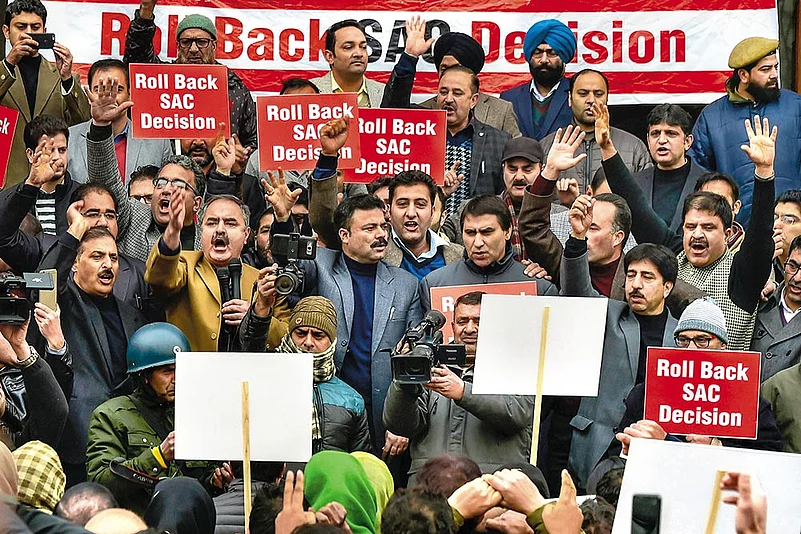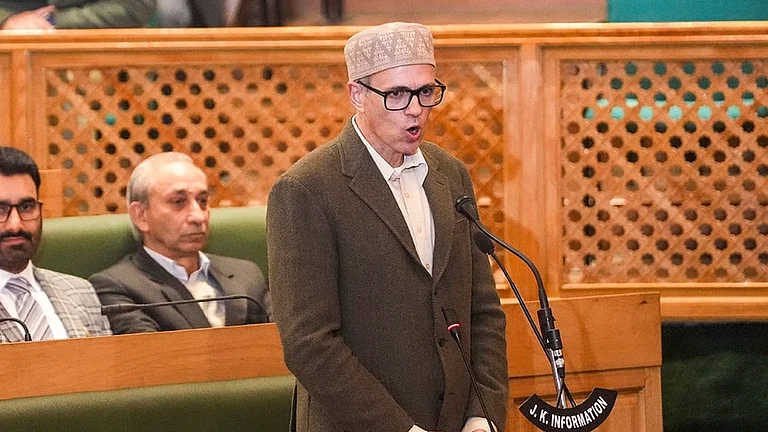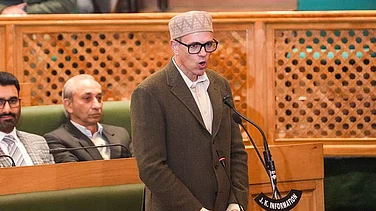A huge banner outside the main gate of the J&K Bank headquarters in Srinagar reads: “Honour the sentiments of people and stop (playing) politics. Rollback SAC decision.” It has been put up by the All India Jammu and Kashmir Bank Officers Federation, which is asking the government to revoke the State Advisory Council’s (SAC) November 22 decision to treat the J&K Bank Limited as a public sector undertaking (PSU). The SAC meeting was chaired by governor Satya Pal Malik and the decision was taken without consulting the bank’s board of directors, which include five independent directors, a state government nominee and an RBI nominee.
The move has created a political storm with all regional parties and trade bodies across J&K insisting that the governor revoke the order. Raising concern over “politicising the autonomy of J&K Bank”, the Jammu Chamber of Commerce and Industry as well as the Kashmir Chamber of Commerce and Industry have asked the governor to review the decision.
Inside the bank’s corporate HQ, officers are worried about the consequences of the decision. They fear government control would turn the bank into an entity like any other state PSU, most of which are running losses due to alleged political and bureaucratic interference. “Bring the bank under the ambit of the Right to Information Act by all means, but changing its character and making it a PSU is fraught with danger,” says an official.
However, bank officials concede that public outcry over recruitments to the bank during the terms of the NC-Congress and the PDP-BJP governments did somewhat mar its reputation. The alleged backdoor recruitments and mismanagement at the top, coupled with the overall economic situation, resulted in bad loans and, in 2016, for the first time in its 80 years, the bank posted losses. The governor alleged that the current bank administration exposed the chinks in the armour by pandering to powerful politicians in the matter of hiring, giving himself enough room to change the bank into a PSU. That didn’t go down well with the parties, which say some cases of alleged backdoor appointments have been used as a ruse to rob the bank of its autonomy.
“I unambiguously reject the changes,” says Peoples Conference chairman Sajjad Gani Lone. “The bank needs to be made bereft of government control, not drowned in it. This is literally the sole lending institution and lending decisions should be commercial decisions outside the ambit of politics.”
Urging the governor-led administration to restrict itself to basic governance, “which they are mandated to do, but are, incidentally, not doing”, Lone says structural changes pertaining to the bank are not acceptable. “Please don’t invent new problems”—that’s his message to the governor, who has come under severe criticism for taking a decision that the regional parties insist is the prerogative of an elected government.
Former CM Farooq Abdullah of the NC calls it “highly unbecoming of the governor administration to fiddle with our institutions when a popularly elected government is not in place”. “The SAC’s onslaught on the prime financial institution of our state, the J&K Bank, is a case in point,” he says, asking for a rollback of the SAC decision.
For her part, the PDP’s Mehbooba Mufti, who was CM in the PDP-BJP government that went out of power when the national party withdrew support this June, opening the way for governor’s rule, accuses the new administration of plunging J&K into crisis after crisis. She says the governor is issuing orders that would only fuel the crises in the conflict-hit state.
The J&K Bank, an old-generation private-sector bank with a workforce of 14,000, is the only bank in the country with a state government holding the majority stake (59.3 per cent). It has 15 million accounts of 11 million account-holders. Coming under the RBI’s regulatory purview and supervision, it is the only private bank designated as the central bank’s agent for carrying out banking business for the state government.
Despite having the J&K government as the major shareholder, the bank was fairly out of its control. The government’s role is limited to appointment of a few directors and nomination of the chairman to the RBI. The finance secretary, who otherwise is the topmost finance man in the state, is just any other director on the board of the bank, which is headed by the chairman. Making it a PSU can change all that. The government can appoint any official as the managing director, who would be subordinate to the finance secretary. For all major decisions, the bank shall have to seek approvals from the finance department. And like it is for other PSUs, the bank CEO would have to seek permission from the finance department even to move outside the state for normal business. “In a nutshell, the bank’s operational autonomy will be fairly curbed, which can put a spanner in its growth,” argues a senior official.
Former finance minister Haseeb Drabu is furious. He accuses the government of downgrading the bank by turning it into an entity on a par with any other state PSU such as the J&K State Road Transport Corporation. He says the bank is supervised by the RBI and audited by the CAG, besides having internal auditors. Now that it has been declared a state PSU, the legislature and other bodies of the government would be interfering in its decision-making, Drabu believes.
“The bank will have to submit its annual report to the legislature like all state PSUs must, but commercial banks owned by the government of India don’t have to submit their annual reports to Parliament! Where is this coming from?” asks Drabu. “What makes it unacceptable is that it is done by an administration that is neither elected by the people nor accountable to them.”
A former MD of a PSU tells Outlook that political and bureaucratic interference will erode the bank’s system, on the lines of what’s happened with the other PSUs. “Take the State Finance Corporation. It has had a negative net worth for years because of mounting losses and NPAs. All efforts of recapitalisation have gone in vain. Political interference has resulted in a situation where almost 90 of its 160 employees are Class IV employees,” says the ex-official, who doesn’t wish to be named.
Dismissing the perception about J&K Bank bailing out people during the unrest in 2008, 2010 and 2016 by keeping its branches open as “simplistic analysis”, the former MD explains, “Many factors are responsible for the resilience of the people. For example, the state has always had a large cash-to-deposit ratio, which helps people tide over long periods of strikes. The fairly large number of government employees, the salaried class, is another reason. Strikes don’t affect salaries. Also, most of the spending that keeps the economy running comes from the government itself. That money circulates. And the apple economy is largely unaffected by strikes.”
And when an unmoved governor Malik told reporters that only people having “personal or political interests” in J&K Bank are opposing the move, Drabu minced no words: “Of course, I have a personal interest in J&K Bank. We have emotional equity in it. Your (governor’s) decision is against the state’s economic interest, and that’s against my political interests. Neither is mala fide. Wish one could say the same about your (governor’s) decisions.”
After the protests and threats of an agitation by political parties, the governor met the bank employees on Tuesday and said, “In view of the concerns expressed, and to give comfort to employees, the government will re-examine the issue of accountability to the legislature.” As of now, the parties seem pleased to have forced a rethink.
***
- Regional parties say the decision to turn the J&K Bank into a PSU should not have been taken when there is no elected legislature.
- “The J&K Bank’s operational autonomy will be fairly curbed, which can put a spanner in its growth,”says a senior bank official.
- Post-protests, the governor told bank employees that the issue of accountability to the legislature will be “re-examined”.
By Naseer Ganai in Srinagar


























